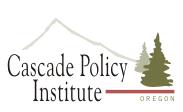 By Stephan Burklin
By Stephan Burklin
Cascade Policy Institute
The city of Portland is perhaps the finest ambassador for the Environmental Protection Agency. Nestled in the idyllic Willamette Valley, the Rose City is the shining environmental vanguard, the poster child for sustainable growth and clean energy. So when the EPA asks Portland to take precautionary measures to guarantee safe drinking water, it’s odd that the city refuses to comply.
The federal agency’s directive to remove illness-causing bacteria seems sensible enough; but Portlanders balk at the idea, for obvious reasons: Hazardous microorganisms have yet to be found in water samples, beer-makers may suffer from the altered character (and cost) of the water, and the $350M price-tag seems a bit high, given that Portland’s water source is the cleanest in the country.
Paradoxically, the “green capital” of America is now the EPA’s recalcitrant partner. The fiasco illustrates Portland’s inconsistencies: The city emphatically supports the costly initiatives it deems necessary but considers the EPA’s request outlandish.
Why? Because streetcars and net-zero buildings are so much sexier than a water-treatment facility. Evidently, Portland’s burgeoning reputation as a green mecca exempts the city from cumbersome precautions. Portland spends millions of dollars every year on highly visible projects; but according to the City Council, safe drinking water does not warrant that kind of attention.
Stephan Burklin is a research associate at Cascade Policy Institute, Oregon’s free market public policy research organization.
Disclaimer: Articles featured on Oregon Report are the creation, responsibility and opinion of the authoring individual or organization which is featured at the top of every article.


